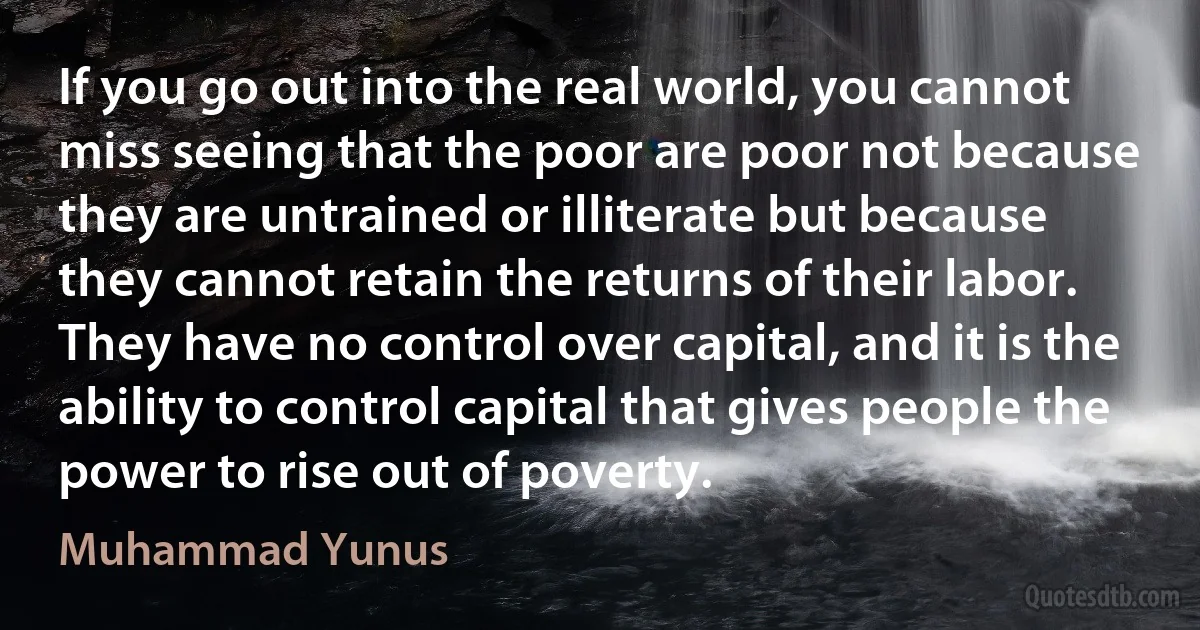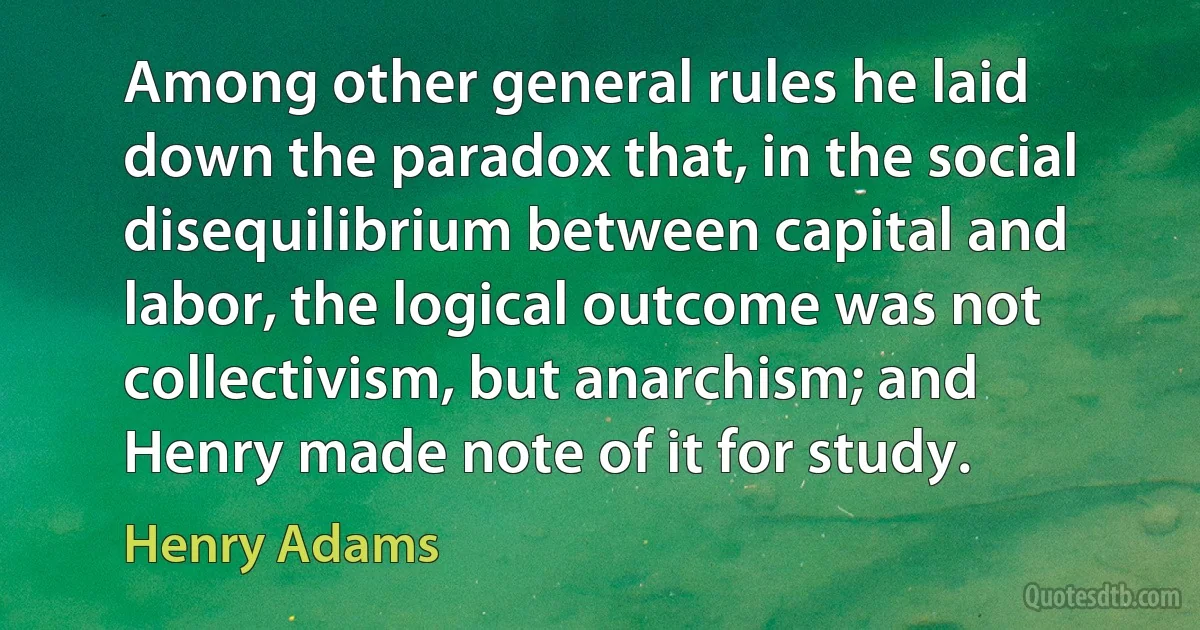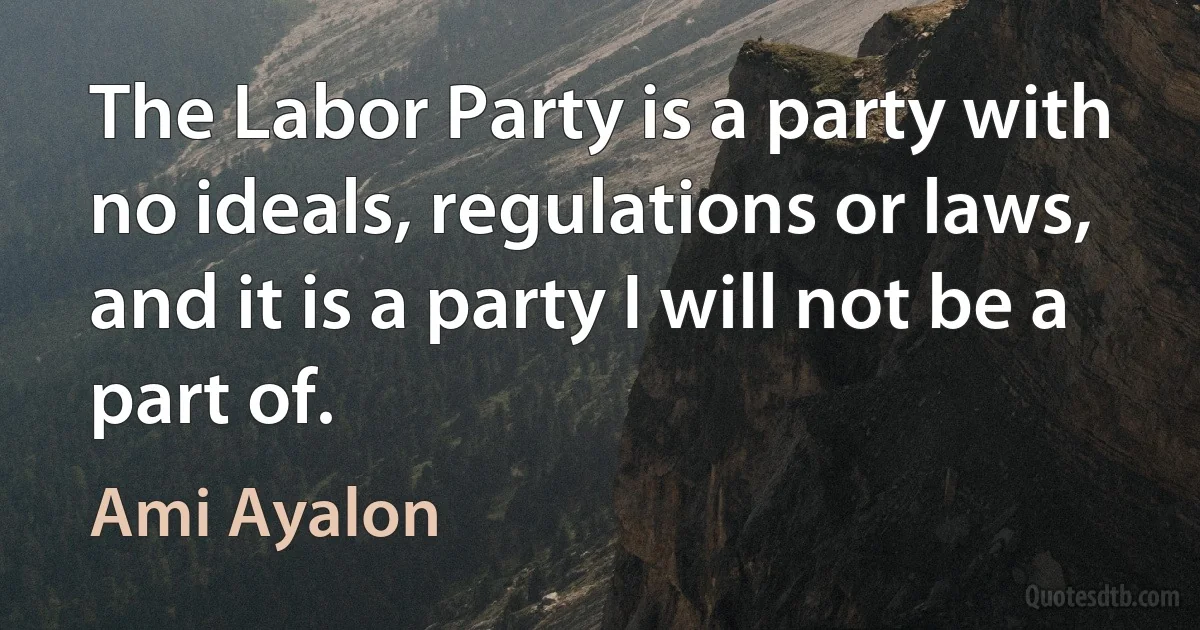Labor Quotes - page 45
In an earlier day, the rich lived at the expense of the poor, directly and unequivocally; in a modern economy, unproductive citizens increasingly live at the expense of productive ones-though in an equivocal way, since they are told, and believe, that they are disadvantaged and deserve more still. Today, in fact, a good half of the population of every modern nation is made up of people with little or no income, who are exempt from taxes and live, to a large extent, off the other half of the population, which pays taxes. If such a situation were to be radicalized, it could give rise to massive social conflict. The eminently plausible free-market thesis of exploitation by the unproductive would then have prevailed over the much less promising socialist thesis of the exploitation of labor by capital.

Peter Sloterdijk
The bourgeoisie is the first class that has learned to say I and that at the same time has the experience of labor. All older class narcissisms can base themselves "only” on struggle, military heroism, and the grandiosity of rulers. When the bourgeois says "I” the idea of the pride of labor, of productive accomplishment can also be heard for the first time.

Peter Sloterdijk
There probably has to be a worldview for practical men who must be strong enough to get their hands dirty in political practice without getting dirty themselves, and even if they do, who cares? And a second worldview for youths, simpletons, women, and sensitive souls, for whom "purity” is just the right thing. One could call it a division of labor among temperaments.

Peter Sloterdijk
The one version of the bourgeois comprises the artisan, the trader, the official, the financier, and the entrepreneur, all of whom, in their own way, can claim to know what labor is. Juxtaposed to them from the beginning, stands a type of bourgeois who does research, writes poetry, composes and makes music, and philosophizes and who believes that these activities develop a world that is self-sufficient. It is obvious that these two fractions of the bourgeois ego get on only superficially and come together only in the hollow connection of property and cultivation. They create the century-long tension between the good and the evil bourgeois, the idealist and the exploiter, the visionary and the pragmatist, the ideally liberated bourgeois and the laboring bourgeois. This tension remains as inexhaustible as that between the world of work and "freedom” in general.

Peter Sloterdijk
The link between Betty Mahmoody's "Not Without My Daughter” and Azar Nafisi's [Reading Lolita in Tehran] is the link between two phases and modes of labor migration, the moral salvation that "the West” provides, and imperial hubris. What is paramount in all of these is the denigration of local cultures as the site of actual or potential resistance to imperial domination. There cannot be any politics of resistance, aesthetics of emancipation, or prose and poetry of agential autonomy in history for people around the world-nothing except a Starbucks Coffee version of the so-called "Western classics” to go and save them. Interview with Znet.

Hamid Dabashi
They did not labor for others. They were beggars-parasites-vermin. They were insane. They followed the teachings of Christ. They took no thought for the morrow. They mutilated their bodies-scarred their flesh and destroyed their minds for the sake of happiness in another world. During the journey of life they kept their eyes on the grave.

Robert G. Ingersoll
I have read somewhere of a sermon preached by one of these in the Cathedral of Notre Dame. This old priest, among other things, said that the soul of a beggar was as dear to God as the soul of the richest of his people, and that Jesus Christ died as much for a beggar as for a prince. One French peasant, rough with labor, cried out: "I propose three cheers for Jesus Christ.”.

Robert G. Ingersoll
Socialism, wherever it actually had the means to plan a society, to pursue efficaciously its vision of the abolition of private property, economic inequality, and the allocation of capital and goods by free markets, culminated in the crushing of individual, economic, religious, associational, and political liberty. Its collectivization of agriculture alone led to untold suffering, scarcity, and contempt for property as the fruit of labor.

Alan Charles Kors



